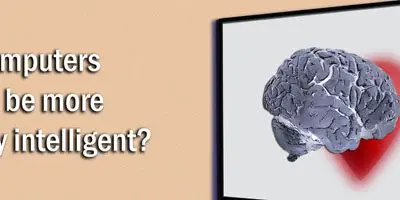The Death Of Personality Tests At Work As We Know Them
Posted on04 Dec 2017
TagsChina, emotions, objective personality tests, The Economist, The New Yorker, Wired Magazine, facial recognition software, Wall Street Journal, Paul Ekman
Comments0
Personality tests at work today mainly consist of surveys. They’re called self-report inventories. They’re popular because one can run many in a... Read More
Emotionally Intelligent Computers Will Help Us How?
Posted on05 Feb 2015
Tagscomputers, organizational culture, customers, emotional intelligence, emotions, internet, leadership, retailing, technology, The New Yorker, training, emotional triggers, big data, clickbait, Elizabeth Dwoskin, Evelyn Rusli, facial recognition software, Meghan Neal, Motherboard, Raffi Khatchadourian, Wall Street Journal
Comments4
As we make computers more human, we learn more about us. This has already changed how we see our skills, talents and... Read More
Personality Tests Fairy Dust in Hiring
Posted on18 Dec 2014
Tagsobjective personality tests, Performance, placebo, The Economist, The New Yorker, hiring, OkCupid, Christian Rudder
Comments14
When we set realistic goals for employees, we improve their performance. When we believe in them, it improves too. Personality tests convince... Read More
Best Way to Try New Behaviors (Pt 1)
Posted on03 Nov 2014
Tagschange management, expectations, The New Yorker, Greger Wikstand, Capgemini, trying new behaviors, Atul Gwande
Comments6
My series Change Management Tactics based on the article, The Hot Spotters, by Atul Gawande (The New Yorker, January 24, 2011 edition),... Read More
Practicing Safe Science
Journalism has a persistent bias for the new and exciting. They sell in pop culture, and as it turns out, they sell... Read More
Better Forecaster of Future, Confidence or Prudence?
Who’s better at forecasting, the confident or prudent? So far, the prudent seem to be winning confidently. More decisively, those most confident... Read More
Leveraging Relationships, Manipulation or Influence?
The techniques in this series sometimes have people asking, “Mike, isn’t this manipulation?” My response is, “Yes, it is, but remember manipulation... Read More
Pricing, The Secret
Posted on19 Sep 2013
Tagsfood, taste, subjective, restaurant, rationale, price, neoclassical economics, James Surowiecki, Influence, The Economist, economics, Dan Ariely, anchoring, violins, lobster, supply and demand, Drazen Prelec, George Loewenstein, values, Tom Sawyer fence painting, The New Yorker
Comments2
The secret to pricing is its arbitrariness, subjectivity. What disrupts this is anchoring, a preconceived benchmark of what should be the price.... Read More
Change Management, The Secret
The secret to change management is relationships. In his article, Slow Ideas (New Yorker, July 29, 2013 edition), Atul Gawande describes change... Read More
Leadership as a Dependent of Conditions
Posted on23 May 2013
TagsThe New Yorker, training, Ron Johnson, J.C. Penney, Target Corporation, fundamental attribution error, Claudio Fernández-Aráoz, Nitin Nohria, Warren Buffett, Talent, Boris Groysberg, certainty, conditionality, control, Harvard Business Review, James Surowiecki, leadership, security, success
Comments0
If we awoke one day with amnesia with life totally scrambled, would we have the same leaders? In his article, “The Turnaround... Read More




